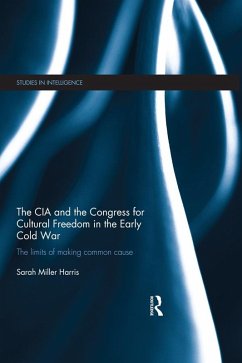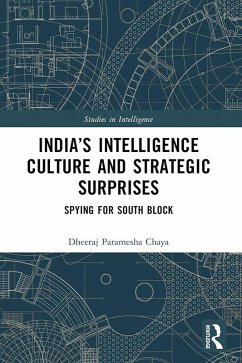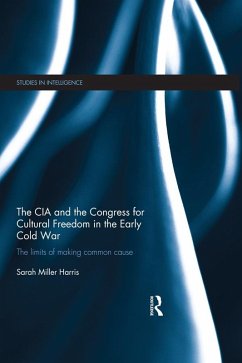
Cognitive Warfare (eBook, ePUB)
Grey Matters in Contemporary Political Conflict
Versandkostenfrei!
Sofort per Download lieferbar
39,95 €
inkl. MwSt.
Weitere Ausgaben:

PAYBACK Punkte
20 °P sammeln!
This book explores the conceptual, historical, and ethical issues of information conflict to present a detailed analysis of cognitive warfare.Is it possible for liberal democracies to deliberately use information on civilian populations to impact political and social institutions? While information conflict has been a part of political conflict, warfare, and international relations for as long as there has been political competition, given that our modern political and social lives are saturated by information, we are now faced with a pressing set of reasons to understand cognitive warfare, an...
This book explores the conceptual, historical, and ethical issues of information conflict to present a detailed analysis of cognitive warfare.
Is it possible for liberal democracies to deliberately use information on civilian populations to impact political and social institutions? While information conflict has been a part of political conflict, warfare, and international relations for as long as there has been political competition, given that our modern political and social lives are saturated by information, we are now faced with a pressing set of reasons to understand cognitive warfare, and to place it in a wider historical and technological context. This book identifies a series of conceptual and ethical challenges facing liberal democracies around modern information conflict. Drawing from historical practices, it suggests that two values - human dignity and political autonomy - can explain why some acts of cognitive warfare might be judged to be good while other acts are judged to be bad.
This book will be of much interest to students and researchers of intelligence studies, ethics, security studies, and International Relations.
Chapters 7 and 9 of this book are freely available as a downloadable Open Access PDF at http://www.taylorfrancis.com under a Creative Commons Attribution (CC-BY) 4.0 license.
Is it possible for liberal democracies to deliberately use information on civilian populations to impact political and social institutions? While information conflict has been a part of political conflict, warfare, and international relations for as long as there has been political competition, given that our modern political and social lives are saturated by information, we are now faced with a pressing set of reasons to understand cognitive warfare, and to place it in a wider historical and technological context. This book identifies a series of conceptual and ethical challenges facing liberal democracies around modern information conflict. Drawing from historical practices, it suggests that two values - human dignity and political autonomy - can explain why some acts of cognitive warfare might be judged to be good while other acts are judged to be bad.
This book will be of much interest to students and researchers of intelligence studies, ethics, security studies, and International Relations.
Chapters 7 and 9 of this book are freely available as a downloadable Open Access PDF at http://www.taylorfrancis.com under a Creative Commons Attribution (CC-BY) 4.0 license.
Dieser Download kann aus rechtlichen Gründen nur mit Rechnungsadresse in A, B, BG, CY, CZ, D, DK, EW, E, FIN, F, GR, HR, H, IRL, I, LT, L, LR, M, NL, PL, P, R, S, SLO, SK ausgeliefert werden.













